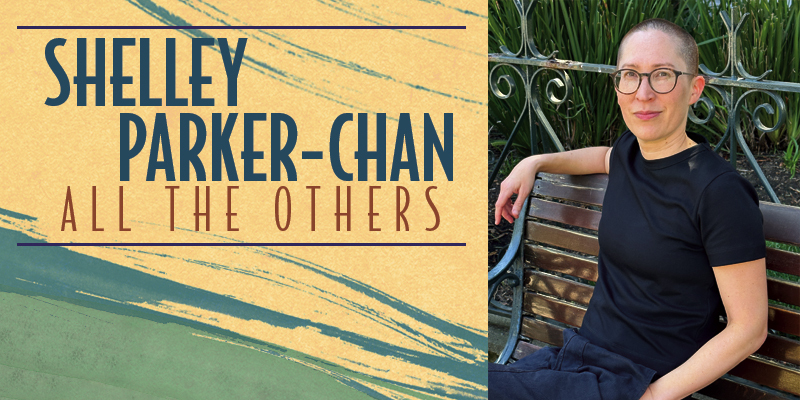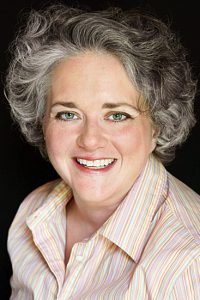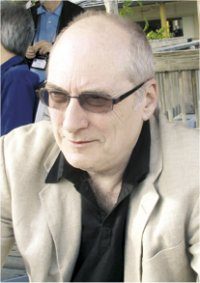Shelley Parker-Chan: All the Others
SHELLEY PARKER-CHAN was born in New Zealand and is of Malaysian-Chinese heritage. They studied engineering and anthropology, and did graduate work on war crimes and restorative justice. Parker-Chan was an international development advisor on issues of human rights, gender equality, and LGBTQ+ rights in Southeast Asia, and worked extensively in several countries in Asia. They now live in Melbourne, Australia.
Debut She Who Became the Sun appeared in 2021, launching the Radiant Emperor duology, and was followed by sequel He Who Drowned the World (2023). The first volume won Best Fantasy Novel in the British Fantasy Awards, was runner-up for the Locus Award for First Novel, and was nominated for Hugo, Dragon, and Otherwise Awards. Parker-Chan won the Astounding Award and the Sydney J. Bounds Award for Best Newcomer in 2022.
Excerpt from the interview:
“A group of my friends got together at a dinner party and complained that we couldn’t find the kind of books we wanted to read in traditional publishing. We wanted something that felt really emotional – like fanfic – but had the big, original worldbuilding of traditional fiction. Or big fantasy or high-stakes environments. Big Feelings. We decided to write down a list of things that we each loved, and we’d write that into our books, without overthinking.
“I made a list of things: hot princes; betrayal; eunuchs; girls dressing as boys – all the classic tropes. I wanted a tragic romance, so I was thinking a lot about Arthurian legends, but also the Chinese classic romances, which are always tragedies, by definition. And Chinese TV dramas, which are these super addictive, 80-episode-long stories full of palace intrigue. They’re often based on historical events, but give a lot more depth to personality – they create personality wholesale, for known historical figures. They’re very pleasing, because you know it’s going to end terribly, because you know how history ends. We Chinese people love a good ‘People stand against the force of society and fail, but, never mind – there’ll be another life in which the lovers are reunited.’ Something about the bittersweet tragedy endings and the realpolitik nature of those stories really appeals to me.
“I decided to write a Chinese drama in book form – and this was well before Netflix made any of this popular, or accessible to Western audiences, so I was still getting pirated DVDs from Chinatown. When I was living in Asia, it was a lot of pirated DVDs also.
“I wanted an all-Asian cast as well, which is not something I’d really read much, even in fantasy books that were written by Asian people. There’s a whole genre of Asian-inspired fantasies written by white people, or by people in the West, that never quite got the interiority or the culture I was looking for. With the TV dramas, I was like, ‘Oh my god, I really feel this struggle of filial piety! It really gets all the nuance.’ Which, obviously, because it’s an Asian product. I was not finding that in the Western-authored Asian-inspired fantasies of the time.
“I ended up writing a TV drama in book form, which, like the models I was following, was based on historical events, but going off on a tangent and really developing the characters. I created this duology, The Radiant Emperor. Initially it was just one book, but I realized you cannot fit 80 episodes of plot into a single novel. Novels hold so much less plot than I had realized. I took as my model the life of a deeply problematic emperor – the founding emperor of the Ming dynasty, who was a complete tyrant. I was inspired by the idea that someone who occupied the lowest rung of society in a deeply stratified, casteist society under Mongol occupiers, could rise up to become an emperor – literally the most powerful person in the entire world – and kick the colonizers out of their country and rule, but do so in a very distressing way.
“This emperor is now known as one of the historical pillars of traditional Chinese patriarchal culture, the head of the neo-Confucianist movement. This guy is held up as the exemplar for a lot of patriarchal values – he’s the ultimate man of Chinese history – and I was kind of wondering, ‘What if I gender-flip it, and play with gender a lot?’
“I ended up with a character who is genderfluid, but who occupies that same position of someone who rises from peasant to emperor, and does interesting things with gender along the way. Due to having experience in different gender roles, they do not end up playing out a tyrannical, patriarchal rule as the historical figure did.
“It was a historical novel, but written in a fantasy register. With Regency romances, we are playing in the Regency sandbox. We know that’s not how history actually went, but we accept, given the conventions of the genre, that dukes are hot, and romances happen in a certain way, and heroes never make their fortunes off slavery – these are the conventions of the Regency romance. Chinese dramas have a similar set of conventions, and has a nonrealistic air. My book has that kind of voice, so it doesn’t feel like reading historical fiction, but more like fantasy.
“That’s what confused agents and editors in my initial queries and submissions. ‘It looks like historical fiction, but then you’ve changed the gender of everyone, and it feels like a fantasy voice. The romance elements feel romance-y; we’re not sure how to market this book.’ I got a lot of rejections for that aspect. Even when I had an agent who understood what I was trying to do and submitted it to the editors, I got some people who were like, ‘We love it, but we don’t know what it is. Can you make it clearly one thing or another?’
“One publisher asked me to change it to a secondary world – they didn’t want it set in China. That upset me so much, because the whole idea of the book is presenting an alternate history – it’s playing up against this idea that there was a historical figure – who was a man – who became emperor, and my character is following a similar trajectory but is not a man. I feel like you had to have those two things in conversation for the book to make sense. Another publisher was like, ‘We love it. Don’t change the China part, but can you please add some magic?’ Which had not previously occurred to me, because in the TV dramas, they’re straight-up historical – there’s no magic, it’s just court intrigue. I didn’t intend for it to have magic, and it’s quite hard to add magic at a later point because it raises all these questions like, ‘If there’s magic in the world, why don’t you use magic to solve all your plot problems?’ I had to thinly layer the supernatural over my existing plot, which is why a lot of the criticism I got of the first book, from hardcore fantasy readers, was, ‘The magic doesn’t do anything – the magic is not fully integrated into the world.’ I accept that criticism. I think in book two, because that groundwork was laid in book one, I could do more with the magic. That’s publishing for you.
Interview design by Francesca Myman
Read the full interview in the March 2024 issue of Locus.
 While you are here, please take a moment to support Locus with a one-time or recurring donation. We rely on reader donations to keep the magazine and site going, and would like to keep the site paywall free, but WE NEED YOUR FINANCIAL SUPPORT to continue quality coverage of the science fiction and fantasy field.
While you are here, please take a moment to support Locus with a one-time or recurring donation. We rely on reader donations to keep the magazine and site going, and would like to keep the site paywall free, but WE NEED YOUR FINANCIAL SUPPORT to continue quality coverage of the science fiction and fantasy field.
©Locus Magazine. Copyrighted material may not be republished without permission of LSFF.








